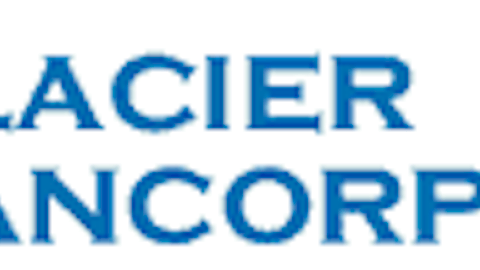It is common knowledge that insider selling is quite problematic to interpret, as insiders tend to sell shares for various reasons that are not related to the future prospects of their companies. Therefore, we would not suggest you to act or trade immediately on each freshly-detected insider sale, but rather go for a more in-depth analysis of the companies that witness insider selling so as to clarify whether those insider trades are cause for concern. Thus, the analysis of insider selling should serve more as a tool in assessing the potential of a stock. The following article will discuss the insider selling activity at three companies and will also attempt to find out what might have propelled these companies’ insiders to sell stock. Let’s now see if the insider selling activity at these companies might hint at some good trading opportunities.

Gustavo Frazao/Shutterstock.com
Prior to discussing the insider trading activity at those three companies, let’s make you familiar with what Insider Monkey has discovered. Through our research we discovered that a portfolio of the 15 most popular small-cap picks of an elite group of hedge funds beat the S&P 500 Total Return Index by nearly a percentage point per month on average between 1999 and 2012. On the other hand the most popular large-cap picks of hedge funds underperformed the same index by seven basis points per month during the same period. This is likely a surprise to many investors, who think of small-caps as risky, unpredictable stocks and put more faith (and money) in large-cap stocks. In forward tests since August 2012 these top small-cap stocks beat the market by an impressive 53 percentage points, returning over 102% (read the details here). Follow the smart money into only their best investment ideas all while avoiding their high fees.
Moving on to the first company in question, Western Alliance Bancorporation (NYSE:WAL), two different insiders of the company sold stock this week. EVP and Chief Credit Officer Robert Reoch McAuslan sold 4,000 shares on Monday at a weighted average sale price of $34.54 and currently owns a stake of 39,229 shares. Similarly, Director Todd Marshall reported the selloff of a 28,471 share-stake on the same day at prices ranging from $34.52-to-$34.73, which was held by a trust fund called the Todd Marshall Revocable Family Trust. The Director continues to own a direct ownership stake of 51,846 shares, along with hundreds of thousands of shares owned indirectly through several trust funds. Western Alliance Bancorporation (NYSE:WAL)’s stock has gained nearly 23% year-to-date, mainly thanks to the company’s strong financial performance in the third quarter. The bank posted earnings per share of $0.58 on net operating revenue of $145.92 million, compared to EPS of $0.39 on revenue of $103.57 million reported a year ago. Therefore, the insiders’ moves provide evidence that insiders follow the stock market adage that says: “Buy on bad news, sell on good news”. Israel Englander’s Millennium Management is one of the hedge funds tracked by Insider Monkey that was bullish on Western Alliance Bancorporation (NYSE:WAL) at the end of the June quarter, owning 1.80 million shares.
Follow Western Alliance Bancorporation (NYSE:WAL)
Follow Western Alliance Bancorporation (NYSE:WAL)
Receive real-time insider trading and news alerts
Let’s now turn the page, where we discuss the insider selling activity at two other companies.
Let’s take a look at the insider selling activity witnessed by another bank, United Security Bancshares (NASDAQ:UBFO). Director Thompson G. Ellithorpe offloaded 1,300 units of common stock on Monday at a price of $5.24 per share. The Director currently owns a stake of 135,035 shares valued at $709,000. This move comes after the holding company for United Security Bank released its financial results for the third quarter on October 15. United Security Bancshares (NASDAQ:UBFO) posted net income of $1.89 million, compared to $1.70 million reported in the same quarter a year ago. The bank’s net interest income increased to $6.63 million from $6.53 million year-over-year. In taking a closer look at these figures, one can notice that the company’s management has been successful in improving operating efficiency lately. Thus, it would be ill-advised to suggest that the aforementioned insider trade serves as a reason for concern. Fred Cummings’ Elizabeth Park Capital Management reported owning nearly 356,000 shares of United Security Bancshares (NASDAQ:UBFO) through its 13F filing for the June quarter.
Follow United Security Bancshares (NASDAQ:UBFO)
Follow United Security Bancshares (NASDAQ:UBFO)
Receive real-time insider trading and news alerts
Last but not least, we will examine the insider selling activity at Capella Education Company (NASDAQ:CPLA), an online post-secondary education services company. Director Stephen G. Shank has unloaded 68,773 shares so far this week through multiple transactions at prices ranging from $52.26-to-$56.73, all of which were held by a trust fund named the Stephen G. Shank Revocable Trust. Following the recent transactions, the trust fund owns 116,510 shares. The Director also holds an indirect ownership stake of 290,594 shares owned by several trust funds. Capella Education Company (NASDAQ:CPLA) is believed to have one of the best business models in the for-profit education sector, and is also among the handful of universities that have seen increasing enrollment. Even so, the shares of the company have lost more than 30% since the beginning of the year, so insiders are not necessarily awaiting a turnaround. The company is set to release its third quarter earnings report before the market opens on October 27, which will surely shed some light on the future course of the company. Jim Simons’ Renaissance Technologies owns roughly 978,000 shares of Capella Education Company (NASDAQ:CPLA) as of June 30.
Follow Capella Education Co (NASDAQ:CPLA)
Follow Capella Education Co (NASDAQ:CPLA)
Receive real-time insider trading and news alerts
Disclosure: None





